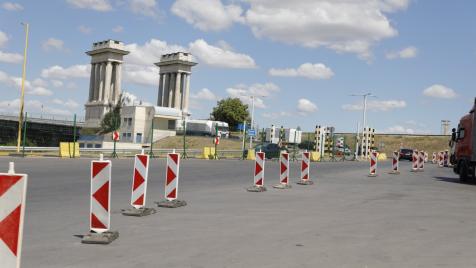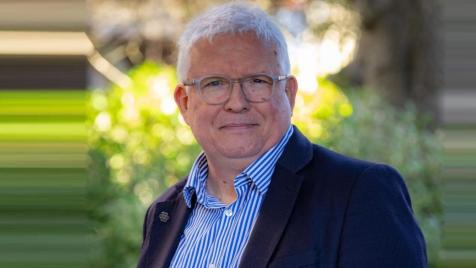U.S. companies are interested in modular reactors in Bulgaria
We expect new investments in the healthcare and automotive sectors
Hannah Kamenetsky, Senior Commercial Officer, U.S. Embassy Sofia, Bulgaria:

Mrs. Kamenetsky, Bulgaria and the United States are far away geographically, but they seem to be getting closer economically - trade exchange has been growing in recent years and has reached about $2 billion. Which Bulgarian goods managed to make a breakthrough on the American market and how?
The United States and Bulgaria are strong, strategic partners, and our growing commercial and economic ties are vital to this relationship. Despite the challenges all economies faced during the pandemic, Bulgarian exports to the United States increased by 77 percent from 2020 to 2022 --from $847 million to $1.5 billion. The top five imports from Bulgaria to the United States in 2022 were computer and electronic products ($224 million); machinery – non-electrical ($211 million); chemicals ($159 million); manufactured goods ($133 million); and primary metal manufactured goods ($121 million). The variety of these imports is a reflection of the diversity, resilience, and competitiveness of Bulgaria’s private sector.
What steps should Bulgarian companies follow in order to start exporting to America?
With a GDP of $20 trillion and 325 million people, the United States is one of the largest consumer markets in the world. Household spending is the highest in the world, accounting for nearly a third of global household consumption. For Bulgarian companies that do their homework, the United States offers significant growth potential. To succeed in this competitive environment, Bulgarian companies need to research and understand consumer tastes and trends to identify target demographics. Industry trade shows, trade associations, industry clusters and trade publications offer a wealth of information on the latest industry trends. In addition, business chambers, such as the American Chamber of Commerce in Bulgaria, offer support, networking, and information from members.
Some Bulgarian entrepreneurs and founders of high-tech companies believe that entering the American market can boost their development. What do they need to know before taking concrete actions? Are you able to support the establishment of Bulgarian companies in the United States and under what conditions?
SelectUSA (https://www.trade.gov/selectusa-home), housed within the U.S. Department of Commerce, is the best resource Bulgarian entrepreneurs can turn to when deciding how to invest in the American market. It offers information and services for potential investors of all sizes. For example, the SelectUSA website offers information about the U.S. states and territories and economic development organizations to help potential investors research and identify sites for new businesses and manufacturing plants.
In addition, every year, SelectUSA hosts their signature Investment Summit near Washington, D.C. It is the highest-profile event dedicated to promoting foreign direct investment in the United States. The four-day event brings together federal and state officials, investment experts, and successful entrepreneurs to showcase the wide range of investment opportunities in the United States and foster direct connections between foreign companies and U.S. economic development organizations.
Of particular interest to the vibrant tech sector here in Bulgaria, SelectUSA Tech creates opportunities at the Investment Summit to connect early-stage and startup technology companies with prospects for advancement in the U.S. market and includes opportunities for pitching sessions to present new products. The U.S. Department of Commerce office at the U.S. Embassy in Sofia organizes participation in the SelectUSA Investment Summit every year and conducts outreach throughout Bulgaria to companies interested in investing in the United States and attending the Investment Summit. The next SelectUSA Investment Summit will mark its 10th iteration and be held June 23-26, 2024. More information can be found at https://www.selectusasummit.us/
The U.S. is among the top six investors in Bulgaria, according to the AmCham Bulgaria data; and according to the latest statistics, American companies provide tens of thousands of jobs in our country. What are the most attractive areas for the American business in our country?
American companies see opportunities in many sectors of Bulgaria’s economy because of its underlying strength, strategic geographic location, and its highly educated workforce. Some key areas of interest to American companies are energy (including gas, civil nuclear, and renewables), information communications technology (including digitalization and cybersecurity), and health care (including e-health).
Energy is undoubtedly one of the areas of interest. According to AmCham data for 2022, the export of American energy products has grown more than 30 times compared to 2000 - due to the import of liquefied natural gas. The delivery of nuclear fuel for the Kozloduy NPP and the possible construction of a new power unit are also expected to happen. What are the realistic options at this stage?
Bulgaria has done an impressive job adapting to the major shocks to the international energy markets brought on by Russia’s invasion of Ukraine and its weaponization of gas supplies. The Government’s focus on diversifying energy sources, including pivoting away from Russian gas, has not only strengthened Bulgaria’s energy security and contributed to the region’s energy independence, but has opened new opportunities for increased foreign investment, including by U.S. companies.
American companies see significant potential in Bulgaria’s energy sector, particularly in the nuclear sector, for both conventional nuclear reactors and small modular reactors. Westinghouse signed an agreement to supply nuclear fuel to Unit 5 at the Kozloduy Nuclear Power Plant (KNPP) and announced the signing of a front-end engineering design study to build its AP1000 reactor at KNPP following a U.S. Commerce Department-led trade mission to the Vogtle Nuclear Power Plant in Georgia. Numerous U.S. companies are exploring partnerships with Bulgaria for the use of small modular reactor technology, a lower-cost, flexible option for enhancing Bulgaria’s energy security and independence.
Beyond nuclear, U.S. companies are also investing in energy transmission. For example, three U.S. companies have been chosen as suppliers for the Chiren Underground Gas Storage facility – Solar Turbines, Honeywell, and Emerson Electric.
Are there any new American investments in Bulgaria, and if so, can you disclose any details about any of them?
We have seen exciting reports of U.S. firms planning significant new investments in Bulgaria, including in the health care and automotive sectors. These investments have the potential to create hundreds of jobs, expand the adoption of cutting-edge technology in Bulgaria, and increase the country’s exports.
Though few, there are examples of successful investments by Bulgarian companies in the United States as well. Which of them can you single out as most significant?
I have spoken with Bulgarian companies across a wide spectrum of industries, ranging from household goods to food processing, sports clothing and equipment to high tech, about their interest in new or expanded investments in the United States. Bulgarian companies interested in investing in the United States can contact the Commerce Department at the U.S. Embassy or visit the SelectUSA Website, which offers extensive resources and information for potential investors.
Are there obstacles that impede the greater development of the bilateral economic and trade relations and what can be done to overcome them?
Trade thrives on open markets without trade barriers and with strong rule of law, a fair judicial system, and public tenders that are open and transparent. Investors seek consistency, predictability, and stability so that they can feel confident that they have the information needed to assess risks and rewards for new investments. Events of the last few years created significant challenges for companies around the world, from the COVID-19 pandemic and subsequent supply chain disruptions, to the Russian invasion of Ukraine, which disrupted oil and grain markets. But trade is resilient, and we are already seeing evidence of recovery in supply chains and job growth. The United States and Bulgaria enjoy strong economic and commercial ties, which will undoubtedly continue to grow as both countries invest in education, innovation, and development across all economic sectors.

 Nevena Mircheva
Nevena Mircheva 


